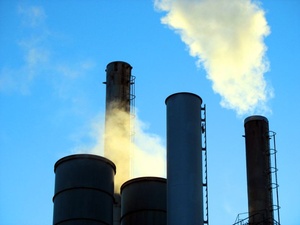
New Managing Director for Bellona Norway
The Board of the Bellona Foundation has appointed former Minister of Climate and the Environment Sveinung Rotevatn as Managing Director of Bellona No...
News

Publish date: December 7, 2010
Written by: Jonathan Temple
News
China originally suggested this at COP15 last year. But the Minister was contradicted by the Deputy Director of China’s National Development and Reform Commission who denied the initiative.
Observers were straining to make sense of the differing comments. Jennifer Morgan, head of the World Resources Institute’s Energy and Climate Program said, “I think that the interesting thing to note is that you had the foreign minister saying slightly different things. That needs to be clarified.”
Alden Meyer, Director of Union of Concerned Scientists, said “ You’re getting slightly different language from different ministers but I read it as a genuine offer to have the pledges they put on the table inscribed in a legally binding manner.”
But realistically, there is little change in China’s basic insistence that any action it takes be voluntary while industrialized countries must make binding commitments. This move also puts some pressure on the US and Japan to show some flexibility in the negotiations.
The top US climate negotiator said Tuesday that China’s hints that it might adopt binding greenhouse gas emissions were not the “game changer” that some have suggested.
The US Envoy for Climate Change, Todd Stern, said that there was nothing new in the Chinese remarks – they made similar commitments in Copenhagen last year.
“I’ll be perfectly honest – I don’t see anything there” he said. “As far as I can tell, it doesn’t appear to be anything new. It looks like business as usual.” Stern said that he is seeking decisions rather than a legally binding commitment at Cancun. He said the negotiations were “difficult” but said that a result was still possible before the talks conclude at the end of the week.
Jonathan Temple is the director of Bellona USA.

The Board of the Bellona Foundation has appointed former Minister of Climate and the Environment Sveinung Rotevatn as Managing Director of Bellona No...

Økokrim, Norway’s authority for investigating and prosecuting economic and environmental crime, has imposed a record fine on Equinor following a comp...

Our op-ed originally appeared in The Moscow Times. For more than three decades, Russia has been burdened with the remains of the Soviet ...

The United Nation’s COP30 global climate negotiations in Belém, Brazil ended this weekend with a watered-down resolution that failed to halt deforest...